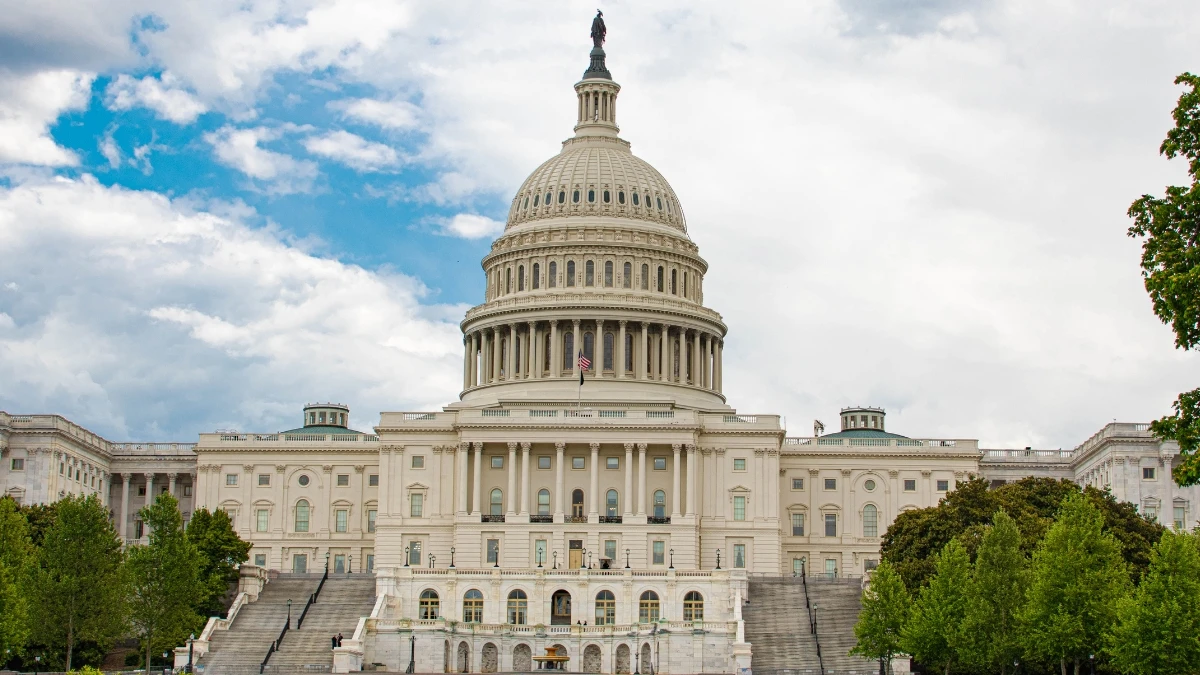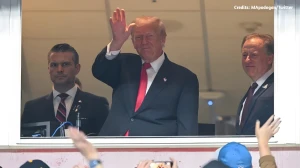Washington, Nov 10 (AP) A group of moderate Democrats has a tentative deal to reopen the government if Republicans promise to hold a vote on expiring health care subsidies by December, a potential breakthrough as lawmakers seek to end the shutdown.
The group of three former governors — New Hampshire Sen. Jeanne Shaheen, New Hampshire Sen. Maggie Hassan and Independent Sen. Angus King of Maine — has a deal to pass three annual spending bills and extend the rest of government funding until late January, according to three people familiar with the agreement who requested anonymity until the deal is made public.
The deal was far from final. It was unclear whether Republicans had signed off or if there would be enough Democrats to support it absent their central demand through the now 40-day shutdown — an extension of the Affordable Care Act tax credits that expire January 1. Senate Democrats were meeting Sunday evening to discuss the agreement.
Republicans have been working with the group of moderates as the shutdown continued to disrupt flights nationwide, threaten food assistance for millions of Americans and leave federal workers without pay. But many Democrats have warned their colleagues against giving in, arguing that they can't end the fight without an agreement to extend the health subsidies.
It would be a “horrific mistake to cave in to Trump right now," said Independent Sen. Bernie Sanders of Vermont, who caucuses with the Democrats, as he walked into the caucus meeting Sunday.
As the Senate held a rare Sunday session, Senate Majority Leader John Thune said that potential deal was “coming together." But he has not yet publicly endorsed the deal.
"We'll see where the votes are,” Thune said earlier in the day.
Democrats have now voted 14 times not to reopen the government as they demand the extension of tax credits that make coverage more affordable for health plans offered under the Affordable Care Act. Republicans have refused to negotiate on the health care subsidies while the government is closed, but they have so far been supportive of the proposal from moderate Democrats as it emerged over the last several days.
For those enrolled in health exchanges under that law, also known as “Obamacare,” premiums on average are expected to more than double next year if Congress allows the enhanced subsidies to lapse.
Democratic pushback expected Republicans only need five votes from Democrats to reopen the government, so a handful of moderate senators could end the shutdown with only the promise of a later vote on health care. Around 10 to 12 Democrats have been involved in the talks, and the three people familiar with the agreement said they had enough votes to join with Republicans and pass the deal.
Many of their Democratic colleagues are saying the emerging deal is not enough.
“I really wanted to get something on health care,” said Michigan Sen. Elissa Slotkin. “I'm going to hear about it right now, but it doesn't look like it has something concrete.” House Democrats were also chiming in against it. Texas Rep. Greg Casar, the chairman of the Congressional Progressive Caucus, said a deal that doesn't reduce health care costs is a “betrayal” of millions of Americans who are counting on Democrats to fight.
“Accepting nothing but a pinky promise from Republicans isn't a compromise — it's capitulation,” Casar said in a post on X. "Millions of families would pay the price.” Rep. Angie Craig of Minnesota posted that “if people believe this is a deal,' I have a bridge to sell you.” Even if the Senate were to move forward with funding legislation, getting to a final vote could take several days if Democrats who oppose the deal draw out the process. The first vote, which could come as soon as Sunday evening, would be to proceed to consideration of the legislation.
The contours of a deal Senate Democratic leader Chuck Schumer, D-N.Y., made a public offer to Republicans on Friday to reopen the government and extend expiring health care subsidies for a year. But Republicans immediately rejected it, with Thune calling it a “nonstarter.” Shaheen, who is leading the negotiations among the Democratic moderates, said the Republican rejection of Schumer's offer showed that “we need another path forward.” The agreement would fund parts of government — food aid, veterans programs and the legislative branch, among other things — and extend funding for everything else until the end of January. And it would take up Republicans on their longstanding offer to hold a future vote on the health care subsidies, with that vote occurring by the middle of December.
It would also include language to reverse some of the Trump administration's mass firings of federal workers that have happened since the shutdown began on October 1.
This report includes content sourced from Press Trust of India (PTI), edited for clarity and context.






